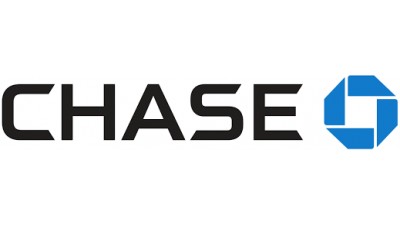Seattle A Renaissance City For Commercial Real Estate Investment

Seattle's reputation as the hometown of corporate giants like Amazon, Starbucks and Microsoft has served it well.
The influx of Fortune 500 companies into the area has led to more interest in Class-A office space Downtown, while the high-paid workers these businesses bring have increased demand for nearby luxury housing. The growing popularity of e-commerce has put pressure on Seattle’s industrial market, which is already seeing historically low vacancies.
Across all sectors, the commercial real estate investment outlook remains positive, particularly within submarkets with access to public transportation. The JPMorgan Chase Seattle team recently closed a $4.8M refinance near 65th Street and Roosevelt Way. The property will be near Roosevelt Station, an anticipated extension of the light-rail line.
JPMorgan Chase was able to close the seven-year hybrid loan in 35 days.
“Any area that's between a 30-minute and one-hour commute into Downtown Seattle is driving interest, and especially around areas where light rail will be going in,” JPMorgan Chase senior manager Nicholas Bley said.
Multifamily
Bley has been a part of the JPMorgan Chase Seattle team for over 20 years. Having worked in wide-ranging roles from portfolio management and financial analysis to sales throughout his tenure, he has developed a holistic view of JPMorgan Chase’s capabilities and has deep knowledge of the Seattle market. Two decades ago, out-of-state and foreign investment was minimal in Seattle, but the city's strong multifamily market has since captured the attention of investors from as close as California and as far as Asia, Bley said.
Apartment vacancy rates have remained under 4% for more than three years while average rent has risen 30%, fueling opportunity for rent growth, according to Marcus & Millichap. The in-migration of well-paid employees looking for transit-oriented apartments near work has also kept the market strong.
“The median income in Downtown Seattle has risen from $70K to $80K,” Bley said. “It is pushing up a class of renters that can afford a nice unit Downtown.”
Around 15,200 multifamily units were completed in 2017, according to a Marcus & Millichap report. Investors are increasingly considering assets beyond the urban core as values have steadily risen. Median rents in Columbia City, a neighborhood seen as one of the last frontiers of urban growth in Seattle, have grown from $2,200 to over $2,800 in a year.

Office
When JPMorgan Chase Regional Sales Manager David Diggs transitioned from the Chicago Commercial Term Lending team to the Bay Area and Seattle, the biggest challenge was adapting to the diverse economic and geographic areas.
“Transitioning to the Bay Area, there is a much heavier influence from the tech industry on the economy and real estate markets,” Diggs said. “But JPMorgan Chase's market strategy has been consistent in delivering for our customers, and our execution strategy has not changed.”
Client manager Steve Roach on Diggs’ team in Seattle recently closed a $3.02M cash-out refinance for an existing borrower who utilized a four-month forward rate lock, no estoppels needed, for a multi-tenant office property in the city.
The influence of tech companies continues to drive the Puget Sound office market. The central business district has boomed as major players like Amazon sign large leases. The e-commerce giant occupies 13.6M SF Downtown. Amazon also made a 369K SF purchase in the Bellevue CBD in Q3. Google and Apple have expressed interest in expanding operations in Seattle, and Snapchat recently acquired 47K SF in Belltown, according to a Colliers report.
Office vacancies dropped to 7.5% in Q3, compared to 7.7% in the previous quarter, foreshadowing growing demand.
Industrial
Seattle's industrial market remains strong. In Kent Valley, the vacancy rate was 4.2% in Q3, an increase of 0.04% year-over-year. The overall average asking rent was $7.45/SF, a $0.84/SF increase from Q3 2016, according to Cushman & Wakefield.
“Industrial has been an extremely hot sector in Seattle, and vacancies are at all-time lows,” Diggs said. “Absorption has been positive and the influence of e-commerce is also having a big impact.”
Across all asset classes, investors have turned to the JPMorgan Chase Commercial Term Lending team for certainty, speed of execution and a team of local experts. JPMorgan Chase has also invested $9.5B in technology to improve the client experience.
“We have released a new system internally that will increase efficiency when providing loans to clients, and we are piloting this now with e-signatures and a new electronic signature platform,” Bley said. “Investing in our technology not only makes it easier for us to originate loans but also saves time for our clients and simplifies banking for them.”
To learn more about this Bisnow content partner, click here.

